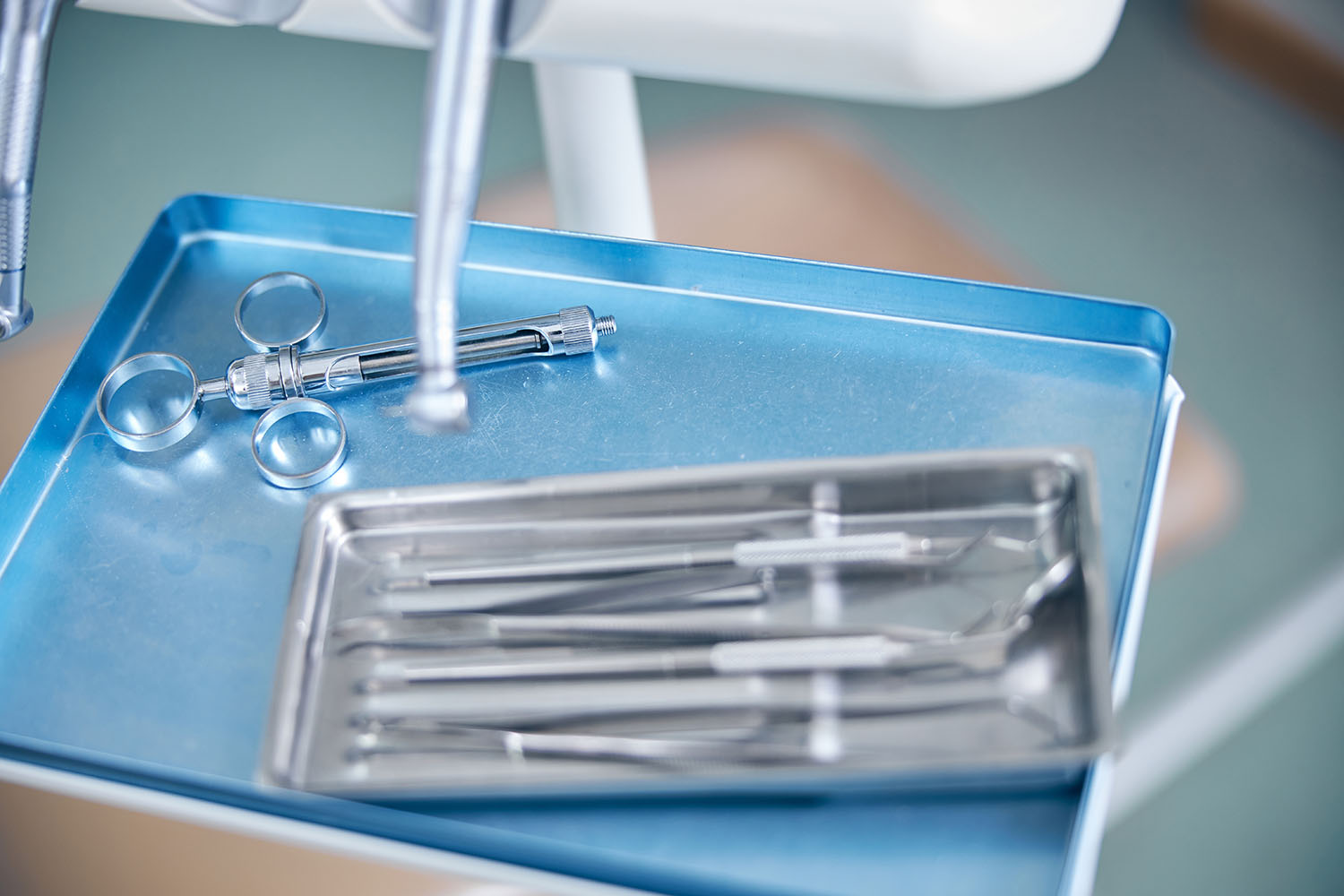
Even though a lot of people don’t embrace the idea of going to the dentist, they nevertheless do it in the name of proper health care. Still, when dental surgery is mentioned, they immediately go into panic mode. It sounds scary indeed, but the reality is that most dental care specialists perform it on the daily, which means it’s second nature to them. If you have been referred to a surgeon for some reason, you might want to take a look at this. This article is a brief overview of the most common types of dental surgery that lets you know what to expect.
Common Dental Surgery Procedures

Let’s delve into the most common dental surgery procedures in the US.
Wisdom Tooth Extraction
By the time we turn into teenagers, almost all our adult teeth come 1 in save for those third molars known as wisdom teeth that join the army later on. Many times, instead of facilitating the eating and speaking processes, they do more harm than good. It’s like they want to kindly remind us that adulthood is no walk in the park.
What happens is oftentimes wisdom teeth crowd other teeth, causing pressure and cracks. Not to mention, they are notorious for giving rise to infection, swelling, and pain. When a wisdom tooth is unable to emerge normally, this is called an impacted wisdom tooth 2. The only way out is extraction.
The procedure takes 40-60 minutes at the dentist’s office. Patients are injected with a local anaesthetic to numb the right spots. If the tooth has not fully erupted, the technician has to make an incision into the gum tissue to facilitate the process. They finish off by placing sutures over the treatment site.
The initial recovery is not the most exciting part of this dental surgery procedure but at least it’s short-term. It will last about a week. The first day or two will be the toughest since your jawbone will be stiff and you won’t be able to open your mouth fully. You will have to follow a liquid diet.
Pain will be a factor but painkillers can make it go away. You want to chill out and rest more because physical activity will improve blood circulation and this may cause bleeding. Of course, no patient should take it to extremes. On the third day, you should try to chew soft foods and ease your way into recuperation. The tissue will heal in full after about a month.
Oral and Maxillofacial Surgery
Various conditions could be curbed via oral surgery. This is reconstructive surgery, the purpose of which is to treat jawbone problems and facial trauma. It can affect parts of the face, head, mouth, and neck. For example, orthognathic surgery (jaw surgery) ensures the teeth and jaws are properly aligned and meet correctly.
In some countries, the dentistry procedure belongs to medical specialities and in others, it is a dental speciality. Like every surgical procedure, it necessitates the use of general anaesthesia 3. In other words, the patient is put to sleep. Everything is accomplished in one go except for when the condition is more complex - in that case, additional appointments will be encouraged.
Dental Implants Surgery
A dental implant is an artificial device employed to replace a missing tooth. It is made of dental restorative materials and functions like a real tooth. Part of it is hidden away inside the gum tissue serving as roots, while the rest is visible. It’s in the form of a crown that enables patients to chew food and speak. The procedure is done in multiple sessions spaced several weeks apart.
After the area is cleaned, the dentist screws the metal posts of the implant to the gums and existing bone structure. It takes months before the tissue grows around the prosthesis.
On the next appointment, patients have their abutment placed. This is an extension of the post that will hold the crown still and the latter is attached as the last step. Sometimes, the surgeon will screw the posts and abutment in one procedure, which will reduce the number of overall appointments. And finally, when the main parts of the implant are installed and the tissue has healed, the dentist secures an artificial crown in place. And voila - the replacement tooth is ready.
In addition to implants, dental prosthetics include crowns, dental bridges, as well as full and partial dentures. These are separate services used to treat other conditions.
Root Canal Treatment
This is a dentistry treatment of the pulp, the soft part of the tooth that contains all connective tissue, nerves, and blood vessels. The pulp can become infected owing to some kind of injury like an untreated cavity 4, a crack or chip in the tooth, or an injury. Unfortunately, this condition doesn’t get better on its own. The best way to deal with it is to clear all the infection before it has reached the bone and gotten way worse.
If you don’t undergo a root canal in time, you will suffer tooth loss and need further treatment (reconstruction). Dentists will always try to save the tooth but if you show up late, there will be nothing they can do. You need to understand that unresolved issues with your teeth can turn into a health hazard and even put your life at risk. It may seem like the process of tooth restoration is uncomfortable and expensive but it will pay off in the future. Proper dental care always pays off.
Q&A on Dental Procedures

What is considered dental surgery in the US?
This is a type of dentistry treatment that involves the gums and teeth. It is more intense than doing a filling because it consists of breaking the gums, extracting teeth, cleaning root canals, etc. Dental surgery is performed with anaesthesia as opposed to, say, whitening and scaling & polishing services.
Is dental surgery painful?
No, it is not, mainly because the site is numbed with a local anaesthetic. Few people don’t respond to anaesthesia; the reasons vary. If you do feel so much of a pinch during the process, let the dentist know and they will figure something out.
What are the types of dental surgery?
There are many forms of dental surgery. The most widespread are dental implants, impacted wisdom teeth, reconstruction surgery, root canal treatment for damaged pulp, biopsies (for oral cancer screening), cosmetic surgery (smile makeovers, and dental bone graft.
What is the most painful oral surgery?
One of the most painful procedures is tooth removal, especially when it has to involve cutting part of the gum or jaw. Then again, the dentistry procedure is executed using local anaesthesia, and sometimes general anaesthesia, so patients are safe. Because healing takes a certain amount of time, pain is felt soon after the appointment is over and continually. OTC pain killers can help mitigate that. Ask your doctor about the best medication to take during this period.
What types of surgeries do oral surgeons perform?
Oral surgeons are trained to perform orthognathic surgery, correction of maxillofacial skeletal deformities, dental implants, temporomandibular joint surgery, craniofacial surgery, cleft surgery, dentoalveolar surgery, maxillofacial trauma, and other kinds of dental surgery. Their services extend beyond those of a regular dentist.
Is teeth whitening considered dental surgery?
Teeth whitening is not regarded as dental surgery because it doesn’t involve any cutting or bleeding. Be that as it may, using stronger bleaching agents is a process that needs to be carried out and monitored by a skilled doctor. Hence, it will require the services of a professional. With or without teeth whitening in place, just make sure to stay on top of your dental care and you will be fine.
Are braces considered dental surgery?
No, braces are not considered dental surgery but you may be advised to undergo oral surgery before you get braces.







